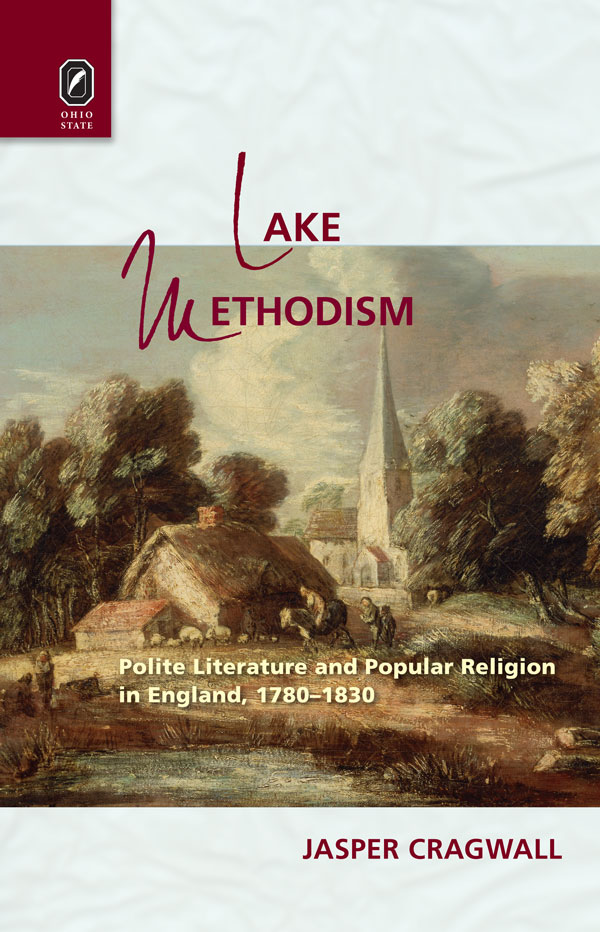Lake MethodismPolite Literature and Popular Religion in England, 1780–1830Jasper CragwallLiterature, Religion, and Postsecular Studies |
 8/29/2013 Literary Criticism/ 251 pp. 6x9  $69.95 cloth 978-0-8142-1227-1 Add cloth to shopping cart $21.95 paper 978-0-8142-5412-7 Add paper to shopping cart $14.95 CD 978-0-8142-9329-4 Add CD to shopping cart Shopping Cart Instructions Review/Change Shopping Cart & Check-out | |||
|
“Confident, compelling, and lively, Lake Methodism will become the definitive study of Methodism and British Romanticism. Providing a nuanced account of religion in Romanticera literature and life, Jasper Cragwall’s scholarship is meticulous and thorough, ranging across diverse sources and engaging energetically with major works of criticism. Students and scholars of Romanticism will find this a thrilling and important book.” —Daniel E. White, University of Toronto “Lake Methodism is a groundbreaking, extremely fertile study that is no less impressive in the breadth and depth of its historical investigations than it is dazzling in its measures of literary shaping and nuance. Jasper Cragwall opens a radically fresh perspective on the now canonical ‘Lake Poets’ (Wordsworth, Coleridge, and Southey) and the now canonical ‘Romanticism’ they shaped and influenced, by uncovering the vast, popular, and controversial culture of ‘Lake Methodism.’ This is a brilliant, foundational intervention in Romantic studies, at once cultural and literary (also on board are Southcott, John Wesley, and the Shelleys), with a long arc across the eighteenth and nineteenth centuries, telling an exciting and deeply informative story of the vital interaction of religious extravagance and literary adventure in the era of ‘long Romanticism.’” —Susan Wolfson, professor of English, Princeton University Lake Methodism: Polite Literature and Popular Religion in England, 1780–1830, reveals the traffic between Romanticism’s rhetorics of privilege and the most socially toxic religious forms of the eighteenth and nineteenth centuries. The “Lake Poets,” of whom William Wordsworth and Samuel Taylor Coleridge are the most famous, are often seen as crafters of a poetics of spontaneous inspiration, transcendent imagination, and visionary prophecy, couched within lexicons of experimental simplicity and lyrical concision. But, as Jasper Cragwall argues, such postures and principles were in fact received as the vulgarities of popular Methodism, an insurgent religious movement whose autobiographies, songs, and sermons reached sales figures of which the Lakers could only dream. With these religious histories, Lake Methodism unsettles canonical Romanticism, reading, for example, the grand declaration opening Wordsworth’s spiritual autobiography—“to the open fields I told a prophecy”—not as poetic self-sanctification, but as awkward Methodism, responsible for the suppression of The Prelude for half a century. The book measures this fearful symmetry between Romantic and religious enthusiasms in figures iconic and unfamiliar: John Wesley, Robert Southey, Wordsworth, Coleridge, as well as the eponymous scientist of Mary Shelley’s Frankenstein, and even Joanna Southcott, an illiterate servant turned latter-day Virgin Mary, who, at the age of sixty-five, mistook a fatal dropsy for the Second Coming of Christ (and so captivated a nation). Jasper Cragwall is associate professor of English at Loyola University, Chicago. | ||||

